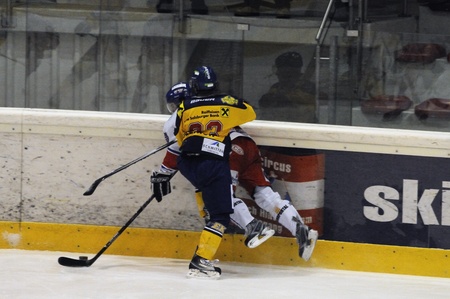When it comes to diagnosing cracked tooth syndrome it can be quite difficult to figure out what the problem is due to the similarity between the symptoms associated with cracked teeth and those experienced with other ailments like sinusitis. Understanding the various causes for cracked teeth, however, can make it easier for the dentist and patient to discern whether or not the patient has experienced any of the events that can cause a cracked tooth, therefore making it easier to diagnose cracked tooth syndrome.
Another benefit of understanding the causes of cracked teeth is prevention. By knowing what activities can cause your teeth to crack, you can try to avoid some of these activities, or take the appropriate measures, to minimize the chance of suffering a cracked tooth.

On this page we outline some of the main causes for cracked teeth with suggestions on what you can do to avoid these situations or to protect your teeth during these events.
Occlusal Forces
A major cause of cracked teeth is due to forces between the teeth in the upper and lower jaws when they come in contact with one another. There are several examples of how a tooth may crack from occlusal forces such as:
Biting on a hard object
Often times, teeth will crack when they are exposed to the excessive force of biting down on a hard object. Biting on a hard object will create too much force on the occlusal surface of a tooth, potentially causing it to crack. Some common objects that are chewed on, either voluntarily or accidentally, which can cause teeth to crack include:
- ice cubes
- popcorn kernels
- olive pits
- nut shells
This is just a small list of items which can cause teeth to crack if bitten with enough force. To minimize your chances of having a cracked tooth, be careful when eating foods that contain hard objects in them and do not voluntarily chew on solid objects that can damage your teeth.
Teeth Grinding
Another way teeth can crack by putting too much force on the occlusal surface is by grinding your teeth. Many people do this in times of stress without even realizing it or while listening to music. Some people may even have a condition called bruxism which is defined as “the involuntary or habitual grinding of the teeth, typically during sleep.”

Try to notice if an when you are grinding your teeth and put a stop to it right away. If you have bruxism, you can try sleeping with a mouth guard so that you cant’t grind your teeth while you are asleep.
Biting down too hard
Sometimes you won’t even need to bite down on a hard object to crack your tooth, simply biting with too much force may cause a tooth in one jaw to unintentionally crack a tooth on the opposing jaw when they make contact. This can be a result of several factors such as:
- genetic structure of teeth – if the cusp on a tooth is larger than the crevice in an opposing tooth, when biting down too hard, the large cusp can put so much force on the opposing tooth causing it to crack
- a tooth beginning to decay – if the occlusal surface of a tooth is beginning to decay, this will make the surface softer than the opposing tooth. Even with a normal biting force this decayed portion of the tooth can get damaged, causing a crack to occur in the tooth.
External Forces
Another major contributor to cracked and broken teeth is from external forces to the facial region. This can occur from playing a variety of different sports such as:
- hockey
- american football
- boxing
- basketball

While playing these sports there is a high chance to take a hard impact to the face from an opponent. If this happens, there is a good chance that some of your teeth may crack, or even worse, break completely. To reduce the risk of this happening, wear a mouth guard and other protective gear when taking part in any sports with high physical contact.
Poorly Done Restorations
If a tooth restoration is not done properly, there is a chance that the restored tooth may crack in the future. Some examples of this include:
- poor reshaping of tooth after a filling is placed
- removing too much tooth structure before placing a filling
- physical forces caused by dental instruments or by placing a filling
- excessive torque on the abutment of a long dental bridge
In order to reduce the likelihood of having a poor restoration completed on one of your teeth, be sure to only allow experienced dentists work on restoring your teeth. Don’t let cost be your main criteria in selecting a dentist for restorations.
Other Causes of Cracked Teeth
The causes mentioned in this article are some of the main reasons people suffer cracked teeth. There are many other causes, but not as likely. Some of these include:
- thermal changes – when you expose your teeth to sudden changes in temperature, like eating a hot meal while drinking an ice cold drink, you can cause small cracks in your tooth enamel which can later expand.
- using electronic tooth brush – although these devices are highly recommended by dentists, they can, in rare cases, cause some minor cracks. If you place too much pressure on your teeth while using one of these devices, the high speed can cause a crack to a tooth.
- biting external objects – we already mentioned chewing on hard objects while eating, but, similarly, some people chew on external object that don’t even belong in the mouth to begin with. A classic example of this is a tongue ring, which is bitten on hard enough, can definitely crack a tooth.
Source
- Canadian Dental Association Publication – The Cracked Tooth Syndrome